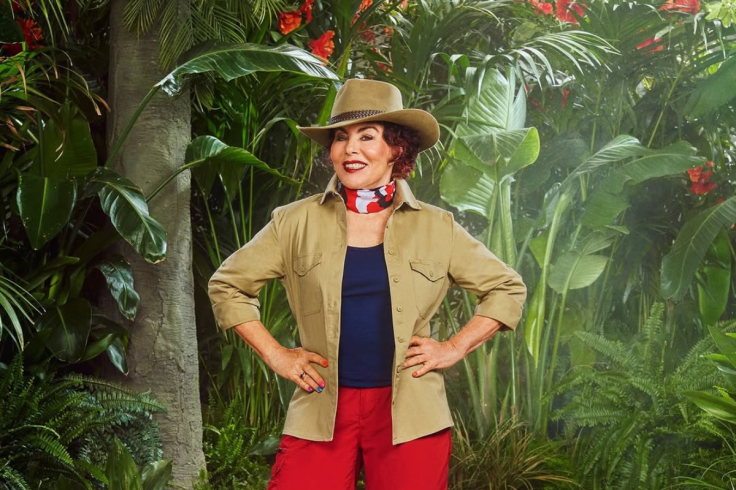Ruby Wax's £4M Mental Health Empire Faces Family Backlash as 'Horrified' Children Watch I'm A Celebrity Gambit
Comedian's jungle fee risks her mental health brand as her daughters publicly distance themselves from her reality TV move.

Ruby Wax's decision to join I'm A Celebrity in Australia for a reported £95,000 has exposed the complex relationship between her mental health advocacy and her pursuit of mainstream fame.
The 72-year-old revealed her children were 'horrified' by her participation. 'My children were horrified, because I am in total embarrassment to them in general,' she admitted before entering the jungle. This candid admission highlights the tension between Wax's carefully developed £3.5 million mental health empire and her desire for wider television exposure.
The Reputational Risks of Commercialising Mental Health
Wax has spent over a decade building multiple income streams around her mental health advocacy. Her 2013 bestseller Sane New World was followed by A Mindfulness Guide for the Frazzled in 2016 and How to Be Human in 2018.
She commands significant fees for corporate speaking engagements, including clients such as Deutsche Bank, the UK Home Office, and Skype, with event costs estimated between £10,000 and £25,000. Industry sources suggest that established speakers like Wax typically deliver 20-30 corporate events annually, generating substantial income.
From Charity to Academia: Building Credibility
Wax's Frazzled Café initiative, launched in 2017 with Marks & Spencer, created physical and virtual spaces for mental health discussion. Operating as a charity, the project helped bolster her brand and contributed to her 2015 OBE for services to mental health.
Her academic credentials further distinguish her from celebrity wellness influencers. She holds a Master's degree in mindfulness-based cognitive therapy from Oxford's Kellogg College and is a visiting professor at Surrey University—credentials that lend her greater credibility in a crowded market.
The Reality Television Calculation
The reported £95,000 fee for Wax's participation in I'm A Celebrity places her in the middle tier among this year's contestants—below rapper Aitch's £250,000 but above lesser-known personalities earning around £75,000. On the surface, three weeks of jungle discomfort for nearly £100,000 seems straightforward. However, the brand risk presents a more complex picture.
I'm A Celebrity operates on principles that potentially conflict with Wax's mental health messaging. Contestants eat insects, undertake humiliating challenges, and reveal vulnerabilities primarily for entertainment rather than therapeutic purposes.
Mental health advocacy has become increasingly professionalised, with authenticity serving as the primary currency. Celebrity advocates face heightened scrutiny, especially as corporate wellness programmes now generate billions annually.
When Vulnerability Becomes a Commodity
Wax's 2023 book, I'm Not As Well As I Thought I Was, detailed her five weeks in a mental health clinic following a relapse into depression. Her openness about vulnerability enhanced her credibility and authenticity.
However, three years later, choosing to endure jungle challenges for money creates a different set of optics. The key question is whether financial motivation diminishes her perceived therapeutic authenticity.
Generational Brand Damage and Market Perception
The public horror expressed by Wax's adult children—Max, Madeleine, and Marina—reflects broader concerns about the commercialisation of mental health advocacy. In a 2018 interview, daughters Marina and Madeleine revealed: 'In our family, we had to be witty from the start.' Their public distancing suggests worries about reputational impact extending beyond personal embarrassment.
I'm A Celebrity reaches peak audiences exceeding 10 million viewers. For established figures like Wax, the decision involves weighing brand reinforcement against potential dilution.
The £95,000 Question
Previous contestants have successfully leveraged their appearances into lucrative book deals, speaking tours, and media contracts. Conversely, some have seen their carefully curated public images unravel under the relentless exposure.
In an era when personal brands increasingly include family reputation, having adult children publicly express horror adds an extra layer of risk. The central question remains: does the £95,000 fee justify potential damage to Wax's £3.5 million mental health empire?
Wax's children's scepticism may serve as the most honest market indicator—highlighting the ongoing debate about the long-term value of such high-profile reality TV appearances for advocacy figures.
© Copyright IBTimes 2025. All rights reserved.





















